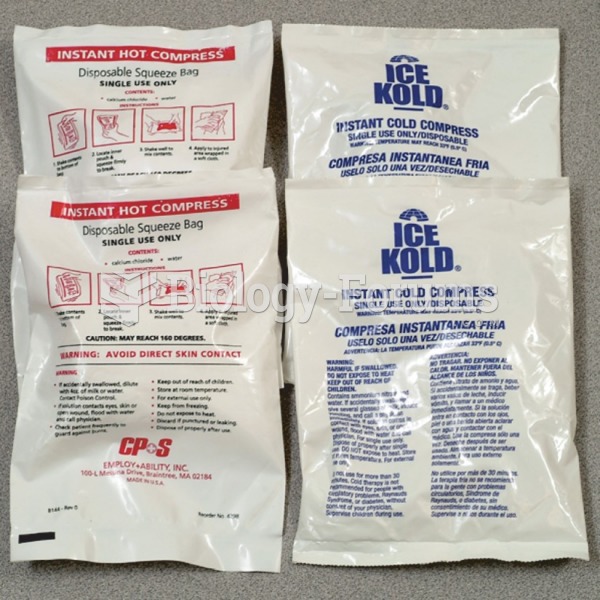|
|
|
Interferon was scarce and expensive until 1980, when the interferon gene was inserted into bacteria using recombinant DNA technology, allowing for mass cultivation and purification from bacterial cultures.
The horizontal fraction bar was introduced by the Arabs.
Most childhood vaccines are 90–99% effective in preventing disease. Side effects are rarely serious.
As many as 28% of hospitalized patients requiring mechanical ventilators to help them breathe (for more than 48 hours) will develop ventilator-associated pneumonia. Current therapy involves intravenous antibiotics, but new antibiotics that can be inhaled (and more directly treat the infection) are being developed.
More than 30% of American adults, and about 12% of children utilize health care approaches that were developed outside of conventional medicine.







